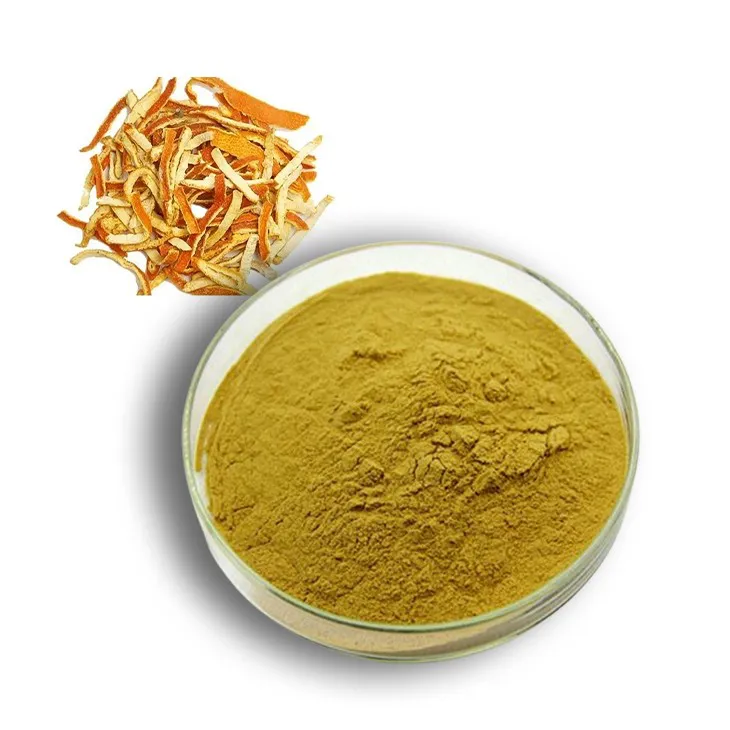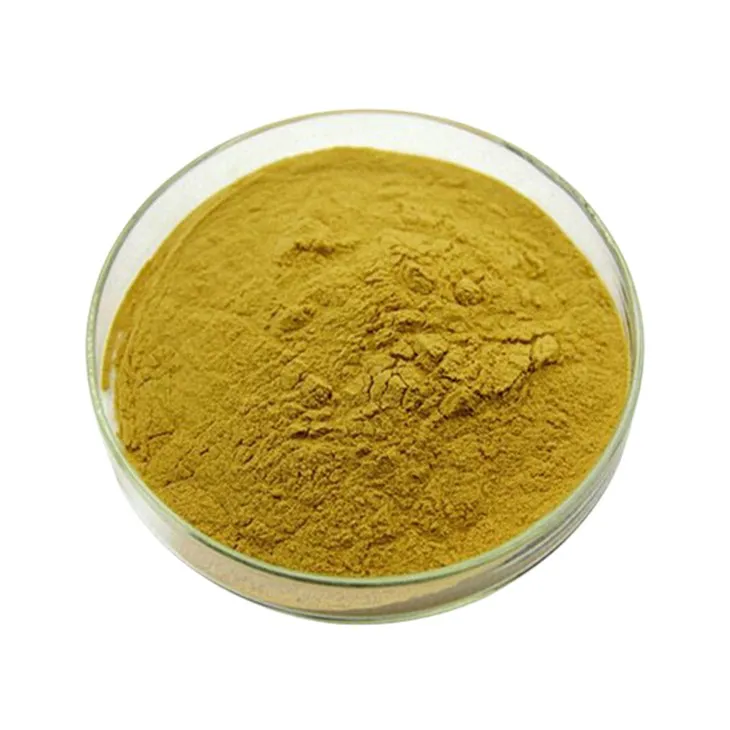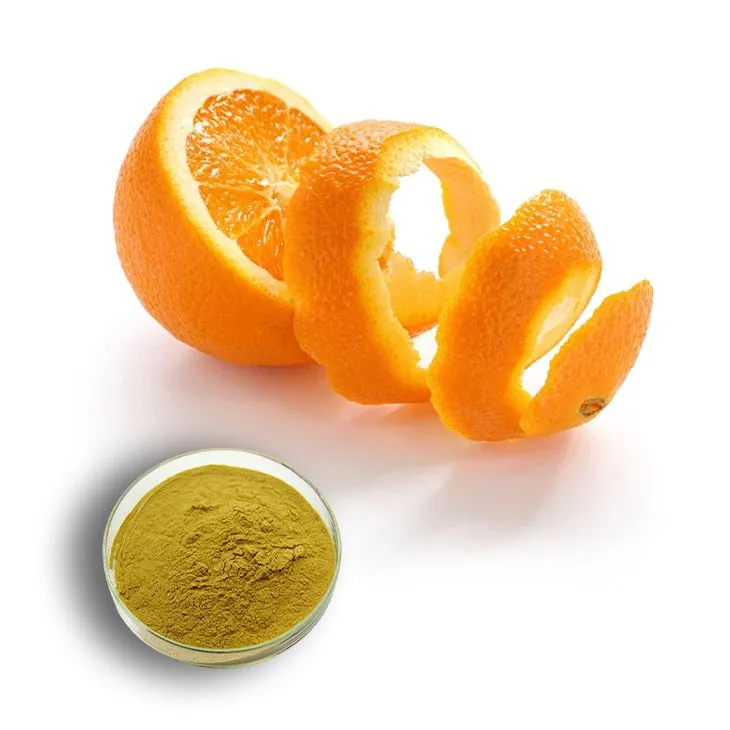- 0086-571-85302990
- sales@greenskybio.com
Read our comprehensive primer on high - quality organic hesperidin.
2024-12-18

1. Introduction to Hesperidin
Hesperidin is a flavonoid that has been garnering significant attention in recent years. It is a natural compound that is abundantly found in citrus fruits, with oranges being one of the most well - known sources. This compound is not just a simple plant - based molecule; it has a wide range of properties and potential applications that make it a subject of great interest in various fields.

2. The Biochemistry of Hesperidin
2.1 Structure and Function
The biochemical structure of hesperidin is quite complex. It consists of a flavanone backbone with a rutinoside side chain. This unique structure endows it with the ability to interact with different biological systems within the human body. For example, it can bind to certain receptors and enzymes, which in turn can modulate various physiological processes.2.2 Interaction with the Body
One of the key aspects of hesperidin's interaction with the body is its role in digestion. It has been shown to enhance the function of the gastrointestinal tract. By doing so, it can improve the overall process of digestion, from the breakdown of food to the absorption of nutrients. This is thought to be due to its ability to regulate the secretion of digestive enzymes and promote the health of the gut lining.
3. Environmental Significance of Organic Hesperidin
3.1 Organic Production Methods
The focus on organic sources of hesperidin is of great environmental importance. Organic production of hesperidin - containing citrus fruits involves farming practices that reduce the use of harmful pesticides and fertilizers. Instead, farmers rely on natural methods such as crop rotation, composting, and the use of beneficial insects for pest control.3.2 Sustainability
This approach not only benefits the environment but also promotes sustainability. Organic farming helps to preserve soil quality, reduce water pollution, and protect biodiversity. For example, by avoiding the use of chemical pesticides, it allows beneficial insects and other wildlife to thrive in the citrus orchards, which in turn contributes to a more balanced ecosystem.
4. Hesperidin in the Nutraceutical Market
4.1 Popular Ingredient
In the nutraceutical market, hesperidin has emerged as a popular ingredient. It is often included in dietary supplements due to its potential to boost energy levels. This is because it can influence cellular metabolism, potentially increasing the efficiency of energy production within cells. Additionally, it has been associated with improved mental focus. It may achieve this by enhancing blood flow to the brain and modulating neurotransmitter activity.4.2 Consumer Appeal
Consumers are increasingly attracted to products containing hesperidin. The growing awareness of the importance of natural and plant - based ingredients for health has led to a surge in demand for products that feature hesperidin. Moreover, its relatively safe profile compared to some synthetic alternatives makes it an appealing choice for those seeking natural ways to improve their well - being.
5. Research on Hesperidin's Potential in Cancer Prevention
5.1 Anti - Carcinogenic Properties
One of the most exciting areas of research regarding hesperidin is its potential in cancer prevention. Preliminary studies have suggested that it may possess anti - carcinogenic properties. It could potentially achieve this through several mechanisms. For instance, it may be able to scavenge free radicals, which are known to cause DNA damage and contribute to the development of cancer.5.2 Ongoing Research
However, it is important to note that research in this area is still ongoing. Scientists are conducting further studies to better understand the exact nature of hesperidin's potential anti - cancer effects. These studies involve in - vitro experiments using cancer cell lines as well as in - vivo studies in animal models. The goal is to determine whether hesperidin can be a viable candidate for cancer prevention or treatment in humans.6. Other Potential Health Benefits of Hesperidin
6.1 Cardiovascular Health
Hesperidin has also been linked to improved cardiovascular health. It may help to lower blood pressure by relaxing blood vessels. This is thought to be due to its antioxidant and anti - inflammatory properties. By reducing oxidative stress and inflammation in the blood vessels, it can contribute to a healthier cardiovascular system.6.2 Anti - Inflammatory Effects
In addition to its role in cardiovascular health, hesperidin has significant anti - inflammatory effects. It can modulate the body's immune response and reduce the production of inflammatory cytokines. This makes it potentially useful in the treatment of various inflammatory conditions, such as arthritis.7. Hesperidin in Cosmetics
7.1 Skin Health
Hesperidin is also finding its way into the cosmetics industry. It is being incorporated into skincare products due to its potential benefits for skin health. It may help to protect the skin from damage caused by UV radiation, as it has antioxidant properties. Additionally, it could potentially improve skin elasticity and reduce the appearance of wrinkles by promoting collagen synthesis.7.2 Hair Health
Some research has also suggested that hesperidin may have benefits for hair health. It could potentially stimulate hair growth by improving blood circulation to the scalp. This is still an area of emerging research, but the initial findings are promising.8. How to Incorporate Hesperidin into Your Diet
8.1 Citrus Fruits
The simplest way to incorporate hesperidin into your diet is by consuming citrus fruits. Oranges, lemons, and grapefruits are all rich sources of hesperidin. Eating a variety of citrus fruits on a regular basis can ensure an adequate intake of this beneficial compound.8.2 Dietary Supplements
For those who may not be able to consume enough citrus fruits, dietary supplements containing hesperidin are also available. However, it is important to choose high - quality supplements from reliable sources. When taking supplements, it is advisable to follow the recommended dosage instructions to avoid any potential adverse effects.9. Safety and Precautions
9.1 General Safety
Hesperidin is generally considered safe for most people when consumed in normal amounts. However, as with any substance, there may be some individuals who experience adverse reactions. For example, some people may be allergic to citrus fruits, in which case they should avoid products containing hesperidin derived from citrus sources.9.2 Interactions with Medications
It is also important to be aware of potential interactions with medications. If you are taking any medications, especially blood - thinning medications or medications for diabetes, it is advisable to consult your doctor before taking hesperidin supplements. This is because hesperidin may interact with these medications and affect their efficacy or increase the risk of side effects.10. Conclusion
High - quality organic hesperidin is a compound with a wide range of potential benefits. From its role in digestion and potential in cancer prevention to its applications in the nutraceutical and cosmetics markets, it is a substance that holds great promise. However, more research is needed to fully understand its mechanisms of action and to ensure its safe and effective use. As consumers become more aware of the potential of natural compounds like hesperidin, it is likely to continue to gain popularity in various industries.
FAQ:
What is high - quality organic hesperidin?
High - quality organic hesperidin is a substance mainly found in citrus fruits like oranges. It has a complex biochemical structure and is produced in an environmentally - friendly way (from organic sources), which means less use of harmful pesticides and fertilizers. It has various potential benefits for the body, such as improving digestion, boosting energy levels, enhancing mental focus, and may have anti - carcinogenic properties.
Why is hesperidin rich in citrus fruits?
The reason why hesperidin is rich in citrus fruits is not fully understood, but it is a natural component of these fruits. Citrus fruits have evolved to produce hesperidin, perhaps as part of their defense mechanisms or for other physiological functions within the plant. And oranges are a prime source of it among citrus fruits.
How does hesperidin improve digestion?
Hesperidin improves digestion by enhancing the function of the gastrointestinal tract. It interacts with the biological systems in the body in a way that promotes better digestive processes. However, the exact mechanisms are still being studied, but it is thought to be related to its influence on the cells and enzymes in the digestive tract.
What makes organic hesperidin environmentally - friendly?
Organic hesperidin is environmentally - friendly because its production as an organic substance reduces the use of harmful pesticides and fertilizers. Organic farming methods are used to cultivate the source plants (such as citrus trees), which are more sustainable and have less negative impact on the environment, like soil, water, and wildlife.
Is there scientific evidence for hesperidin's role in cancer prevention?
Research on hesperidin's potential in cancer prevention is ongoing. While there are some indications that it may have anti - carcinogenic properties, more studies are needed to provide conclusive scientific evidence. So far, laboratory and some preliminary clinical studies suggest that it may play a role in preventing cancer, but it has not been definitively proven yet.
Related literature
- The Role of Hesperidin in Health and Disease"
- "Organic Compounds from Citrus Fruits: Hesperidin and Beyond"
- "Hesperidin: A Promising Nutraceutical - An Overview of Current Research"
- ▶ Hesperidin
- ▶ citrus bioflavonoids
- ▶ plant extract
- ▶ lycopene
- ▶ Diosmin
- ▶ Grape seed extract
- ▶ Sea buckthorn Juice Powder
- ▶ Beetroot powder
- ▶ Hops Extract
- ▶ Artichoke Extract
- ▶ Reishi mushroom extract
- ▶ Astaxanthin
- ▶ Green Tea Extract
- ▶ Curcumin Extract
- ▶ Horse Chestnut Extract
- ▶ Other Problems
- ▶ Boswellia Serrata Extract
- ▶ Resveratrol Extract
- ▶ Marigold Extract
- ▶ Grape Leaf Extract
- ▶ blog3
- ▶ blog4
- ▶ blog5
-
Pure 85% Tomentil Extract.
2024-12-18
-
Kidney Bean Extract
2024-12-18
-
Oat Straw Extract Powder
2024-12-18
-
Phellodendron Extract
2024-12-18
-
Maitake Mushroom Extract
2024-12-18
-
Astaxanthin
2024-12-18
-
Gynostemma pentaphyllum extract
2024-12-18
-
Mango flavored powder
2024-12-18
-
Okra Extract
2024-12-18
-
Dan Shen Root Extract/Salvia Root Extract
2024-12-18
-
Rose Hip Extract
2024-12-18





















